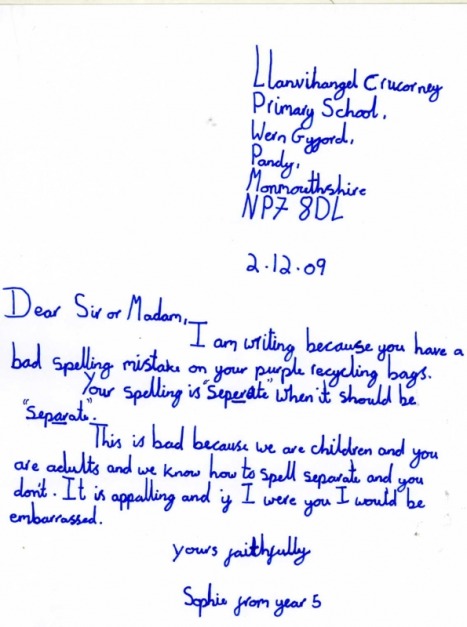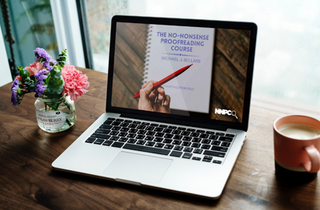|
If anyone ever asks you what a proof reader does, for heaven’s sake don’t start talking about spelling mistakes and grammatical errors right off the mark. You’ll see their eyes glaze over in under a minute and they’ll do that stretching-mouth, flaring-nostrils thing which means they’re yawning but they don’t want to hurt your feelings so they’re trying to kind of seal it in. Do you remember that scene in Dead Poets’ Society when Robin Williams as John Keating asks his class for which single endeavour language was developed? He receives the unimaginative answer of “To communicate” and swiftly counters with, “No! To woo women!” Well, the ‘what does a proof reader do’ question should be tackled in pretty much the same way. That isn’t to say we proofread in order to dazzle the opposite sex (although, why not? Why not?), but it most certainly is about more than just spelling errors and grammatical blunders. We proofread to spare blushes. We proofread to protect our employers and clients from embarrassment. Let’s take a look at the kind of embarrassment, in fact the sheer humiliation which the strategic deployment of an effective proof reader would quickly have nipped in the bud. In December of last year, a school teacher spotted a spelling error on Monmouthshire Council’s recycling bags. The instruction to ‘separate’ various materials for recycling purposes was printed as ‘seperate’. An easy mistake to make, and not an uncommon one. Hardly humiliating, you might think. However, the teacher in question, Helen Pritchard, took the recycling bag to her class at Llanvihangel Crucorney School and asked her 20 pupils if they could spot the mistake. Without exception, the primary level students nailed it. They then wrote a letter to the council (see below) expressing their disapproval. Okay, having a classroom full of ten-year olds admonish you for poor spelling is a little embarrassing but still a few lengthy strides away from ‘humiliating’.
Well, this little episode made it into the local press. Okay, we’re edging toward humiliating now, but we’re not all the way there yet. Then, the piece was taken up by the BBC and featured on their website. The BBC website receives 1.2 million page views and 80 million hits per month. Like I said: humiliating. So, we proof readers don’t simply expose spelling errors and grammatical slip-ups. No, we shield our employers and clients from the searing heat of unwanted publicity in a media-soaked era. Okay, so we do that by trawling for spelling mistakes and poorly-executed English, but that's not going to hold anyone's attention at a dinner party, is it?
0 Comments
Your comment will be posted after it is approved.
Leave a Reply. |
Details
Testimonials
“I am one of those many fools who paid a huge amount of money for a useless course. This book... has opened so many doors for me. I now look on Mike as my mentor as I embark on a career. Thank you Mike.” Emma Steel, Proofreader and International Structural Editor. “ I thoroughly enjoyed the course and am so glad that I decided to take it... the whole experience was invaluable. My proofreading service is now well established and your course played no small part in getting it off the ground.” Hache L. Jones, Proofreader. “I'd just like to thank you first of all for writing such a great, straight forward eBook, and then going above and beyond what I would even expect as a customer by providing us, completely free of charge, updated versions months later!” Rachel Gee, Trainee Proofreader. “What can I say? Worth every penny and then some! God Bless! This a fabulous course.” Teresa Richardson, Proofreader. “As someone who has effectively been proofreading for thirty years, I found Mike’s No-Nonsense Proofreading Course an invaluable introduction and a very useful practical guide to many aspects of this discipline. I can wholeheartedly recommend it as the ideal starting point, and much more besides.” Jeremy Meehan, Proofreader. Blog AuthorMy name's Mike Sellars and I'm an experienced proofreader and the author of The No-Nonsense Proofreading Course. Click here to find out more about me. The No-Nonsense Proofreading CourseA Fraction of the Cost of Other Proofreading Courses NOTE: Stock is currently limited to 10 per day, so we can continue to deliver exceptional after-sales service, answer queries and provide open-door support. Credit card and PayPal payments accepted. “As someone who has been proofreading for 30 years, I found Mike’s course an invaluable introduction and a very useful practical guide to many aspects of the discipline. I can wholeheartedly recommend it.” Jeremy Meehan, Proofreader. Still want to find out more? Click here. Proofreading Categories
All
Proofreading Archives
July 2024
|


 RSS Feed
RSS Feed
